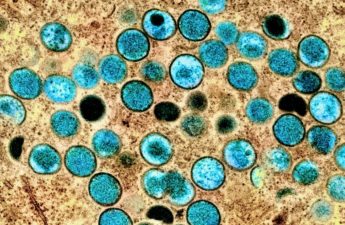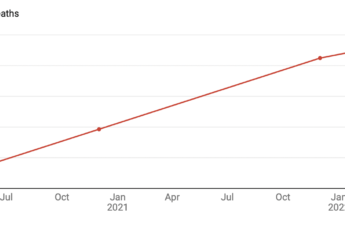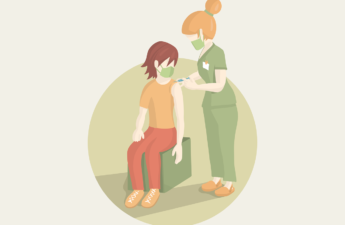In one study, those who always wore any type of mask or respirator in indoor public spaces were 56% less likely to test positive than those that never wore one. There was an 83% reduction in the odds of getting a positive test in those who wore a respirator, compared with a 66% reduction in those wearing surgical masks. Those wearing a cloth mask had lower odds of having a positive PCR test result than those wearing no mask, but the difference was not statistically significant.
Video: Why the public health system is struggling to contain monkeypox
Funding cuts and outdated technology are hampering the U.S. response on the ground as monkeypox cases continue to rise.
Why are drug names so long and complicated?
There is a rhyme and a reason to drug names. A pharmacist explains.
White children are especially likely to be overdiagnosed and overtreated for ADHD, according to a new study
Among elementary school children who had shown above-average academic achievement, 27% of white children versus 19% of nonwhite children were later diagnosed with ADHD. About 20% of white children versus 14% of nonwhite children were using ADHD medication.
An expert panel has recommended against taking vitamin E or beta carotene supplements for the prevention of cancer and cardiovascular disease – here’s why
The panel of experts concluded that with regard to the prevention of cardiovascular disease or cancer, the harms of beta carotene supplementation outweigh the benefits and that there is no net benefit of supplementation with vitamin E for those purposes.
How your status, where you live and your family background affect your risk of dementia
Socioeconomic status has been closely linked to a range of health disorders, and dementia is no exception. Studies across multiple countries have shown people with higher socioeconomic status are less likely to develop dementia.
Boost Now or Wait? Many Wonder How Best to Ride Out Covid’s Next Wave
Consistent messaging has been complicated by the different views of leading vaccine scientists. Although physicians like del Rio and Dr. Peter Hotez of Baylor College of Medicine see the value in getting a second booster, Dr. Paul Offit, a member of the FDA’s vaccine advisory committee, is skeptical it’s needed by anyone but seniors and people who are immunocompromised.
Monkeypox FAQ:
How is it transmitted? Where did it come from? What are the symptoms? Does smallpox vaccine prevent it?
1 in 8 U.S. deaths from 2020 to 2021 came from COVID-19 – leaving millions of relatives reeling from distinctly difficult grief
More than 9 million Americans have lost a close relative to COVID-19, a dramatic rise in bereavement that makes them vulnerable to mental distress.
Migraine sufferers have treatment choices – a neurologist explains options beyond just pain medication
Research shows that alternative therapies are associated with improved sleep, feeling better emotionally and an enhanced sense of control. Some patients can avoid prescription medications altogether with one or more complementary treatments. For others, the nontraditional treatments can be used along with prescription medication.
How hot is too hot for the human body? Our lab found heat + humidity gets dangerous faster than many people realize
Heat waves are becoming supercharged as the climate changes – lasting longer, becoming more frequent and getting just plain hotter. One question a lot of people are asking is: “When will it get too hot for normal daily activity as we know it, even for young, healthy adults?”
Abortion decision cherry-picks history – when the US Constitution was ratified, women had much more autonomy over abortion decisions than during 19th century
As a medical procedure, abortion was widespread in Colonial and 18th-century America. By using more or less safe techniques, midwives and medical practitioners performed many types of operations on their patients. The woman could easily die, of course; but when she sought an abortion, no social, legal or religious force would have blocked her.
An online life coaching program for female physicians decreases burnout, increases self-compassion and cures impostor syndrome, according to a new study
The doctors who participated in this program went from highly to only mildly burned out, while their peers who were not in the program became even more burned out.
Should you get a COVID-19 booster shot now or wait until fall? Two immunologists help weigh the options
Clinical studies show that mixing and matching booster vaccines can lead to a more robust immune response.
Frustrated With Delays, Doctors Take Aim at Prior Authorization
Doctors have long asserted that prior authorization — the need to get approval from the patient’s insurer before proceeding with treatment — causes delays that can hurt patient care. Prior authorizations also exact a toll on doctors, who say the paperwork has gotten out of hand.













